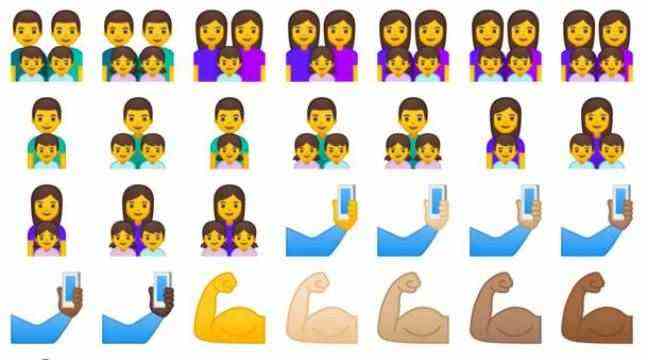EDIT February 7, 2022: The pregnant man and pregnant non-gendered person emoticons appeared in September 2021. But Apple added it to its emoji gallery last week in its new version of iOS, 15.4. Since then, the earth has trembled, Internet users have cried foul and even Cyril Hanouna’s team was moved by it in “Touche pas à mon poste” ensuring that “this world is not going at all” and that “it’s going ball”. “20 Minutes” therefore invites you to reread this article which explains why with each release of a new emoticon, a very powerful exchange and communication tool, war 2.0 is declared.
This Thursday, Google was talking about him on the networks by announcing that he was removing the egg present on his salad emoji. The reason ? “This makes it a more inclusive vegan salad,” explained in
a tweet, Jennifer Daniel, head of emoji design at the Internet giant. An approach which has both given rise to
strong reactions in omnivores and
left some doubtful.
This controversy around an emoji is nothing new. Many struggles, ideas and means of identification or belonging pass through these small icons and are debated. Thus, for almost three years, smartphone face emojis have been available in different skin colors. In 2017, an NGO wanted to create a ruler emoji to lift the taboo on menstruation. Not long ago, the redheads finally got their emoticon.
“Symbols have an impact in our society”
“Seen from above, it looks a little ridiculous, but if you scratch, much less. On the Internet, the emoji is a universal code, understandable throughout the world,” explains Andre Gunthert, teacher-researcher at Ehess, specializing in visual culture. A characteristic that makes the emoticon a very powerful tool for exchange and communication.
“There are two levers around the emoji: what it symbolizes and who it represents”, continues André Gunthert. Thus, replacing the revolver emoji with a water gun or removing an egg from a salad is symbolic. Will the first advance the debate on the carrying of firearms in the United States and the second will change the condition of laying hens in battery? Not sure, but that doesn’t mean there won’t be any consequences. “Symbols have an impact in our society. Over time, they change our way of seeing things, mentalities. »
“A means of identification”
For the “representation” side, Vincenzo Susca, lecturer in sociology of the imaginary at the Paul-Valéry University in Montpellier, sees the emoji as the new “means of identification” on the web. “We recognize ourselves and we express the identity of a group through these images. The digital space is increasingly becoming our territory of life and we want to be able to express ourselves there as vegans, redheads or blacks. »
“This is a closed code game: the number of emoji is limited. Either you are there or you are not. In all minority struggles, there is a desire to appear in the public space. Quite simply because it is what is seen or not that determines the norm. The fact that there are debates around emojis claimed by a minority is not surprising. In physical life, the fights of minorities also disturb the majorities”, analyzes André Gunthert. “We are only at the beginning. One day, each group, with its nuances, differences and facets, will have its own emoji,” says Vincenzo Susca, author of the book. Connective affinities.
A playful weapon
According to the sociologist, the emoji also responds to the need to unite between people who look alike or with common ideas to lead fights from physical life to digital life. As if the networks were a battlefield and the emojis, weapons, but “fun”. “This allows you to pass through the game, something that is not a game. »
These images behind which different communities recognize each other are also means of expressing emotions. “However, emotion is at the heart of our society. Hence the significant presence of emojis in reactions on networks or digital exchanges. “Millennials express themselves more through images than through writing. The text complements the emoji, not the other way around! It is the transition from speech to body language. »
This may explain why one less egg in a salad is no longer so trivial.

